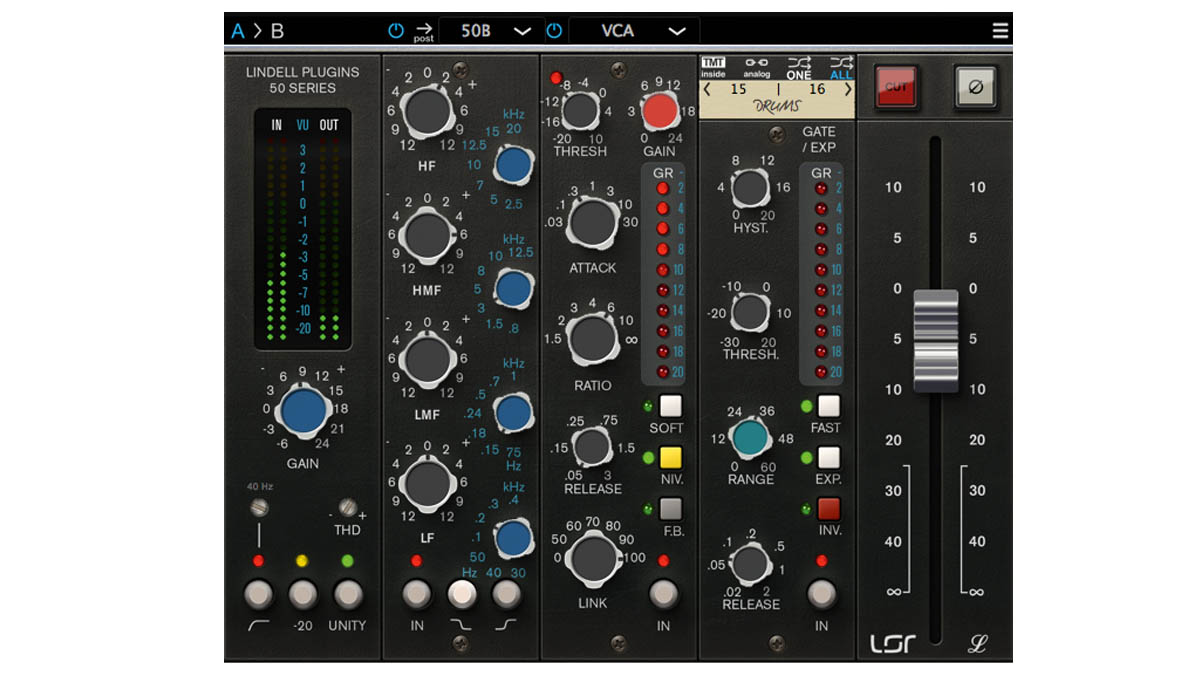MusicRadar Verdict
A great pair of plugins that deliver multiple API classics and then sprinkle some TMT magic on top for good measure.
Pros
- +
Choice of three EQ modules.
- +
Choice of two compression modules.
- +
Analogue saturation on either Channel or Buss plugin.
- +
Handy Unity gain compensation option on both plugins.
- +
Subtle channel to channel variations using Brainworx’s TMT.
Cons
- -
Original features omitted.
MusicRadar's got your back
What is it?
Over time, channel strip plugins have developed to accurately emulate more subtle aspects of the analogue signal flow including saturation, noise and even stereo image.
Plugin Alliance offerings from both Lindell/LSR and Brainworx combine excellent modelling and Brainworx’ Tolerance Modelling Technology (TMT) to deliver awesome results. Lindell Audio 50 Series (AAX, VST, VST3, AU, Audiosuite) is the latest offering from the Lindell Plugins/LSR Audio collaboration and follows a similar path to their Neve-style 80 Series.
Modular
Inspired by API’s classic designs, 50 Series is actually two separate plugins – Channel and Buss. Channel is a fully-featured 5-stage modular-style channel strip with preamp, EQ, compressor, expander/gate and master sections, with a choice from three different EQs (50A, 50B and 60) and two different compressors (FET and VCA). Meanwhile, Buss is a much simpler 2-stage summing plugin, incorporating line amp and fader modules.
The preamp and line amp stages include adjustable harmonic distortion. Meanwhile, the main menu provides op-amp clipping options (Hard, Soft and Off), circuit noise (On/Off) and oversampling (2x to 16x). You can also choose the plugin side-chain target (gate/expander or compressor).
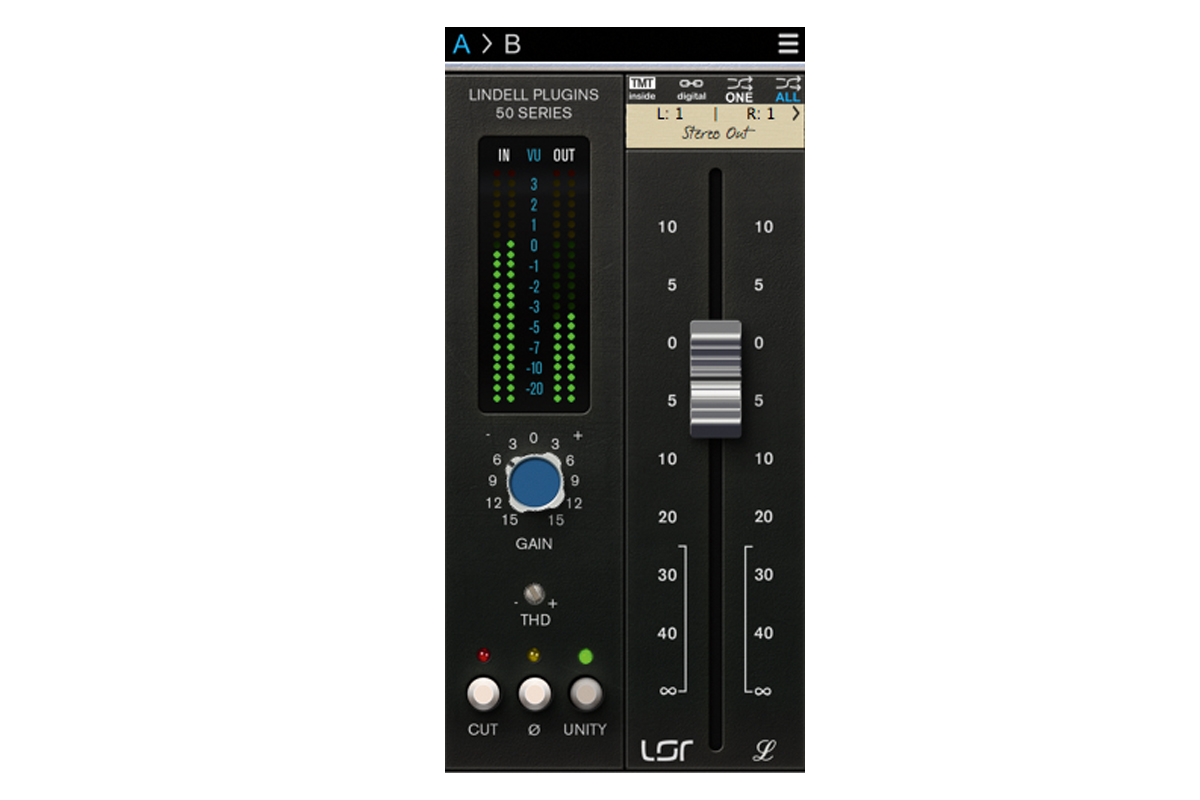
As mentioned, both plugins incorporate Brainworx’s TMT (Tolerance Modeling Technology) system. We’ve discussed TMT before and in the 50 Series you have 32 different TMT channels to play with. The channel-to-channel variances that TMT introduces are great for adding analogue desk authenticity across multiple channels.
But even on individual stereo channels, you can choose identical left/right TMT channels (Digital) or adjacent ones (Analogue), and with the latter, each channel pair influences the audio slightly differently, so it’s great for adding vibe.
Subs
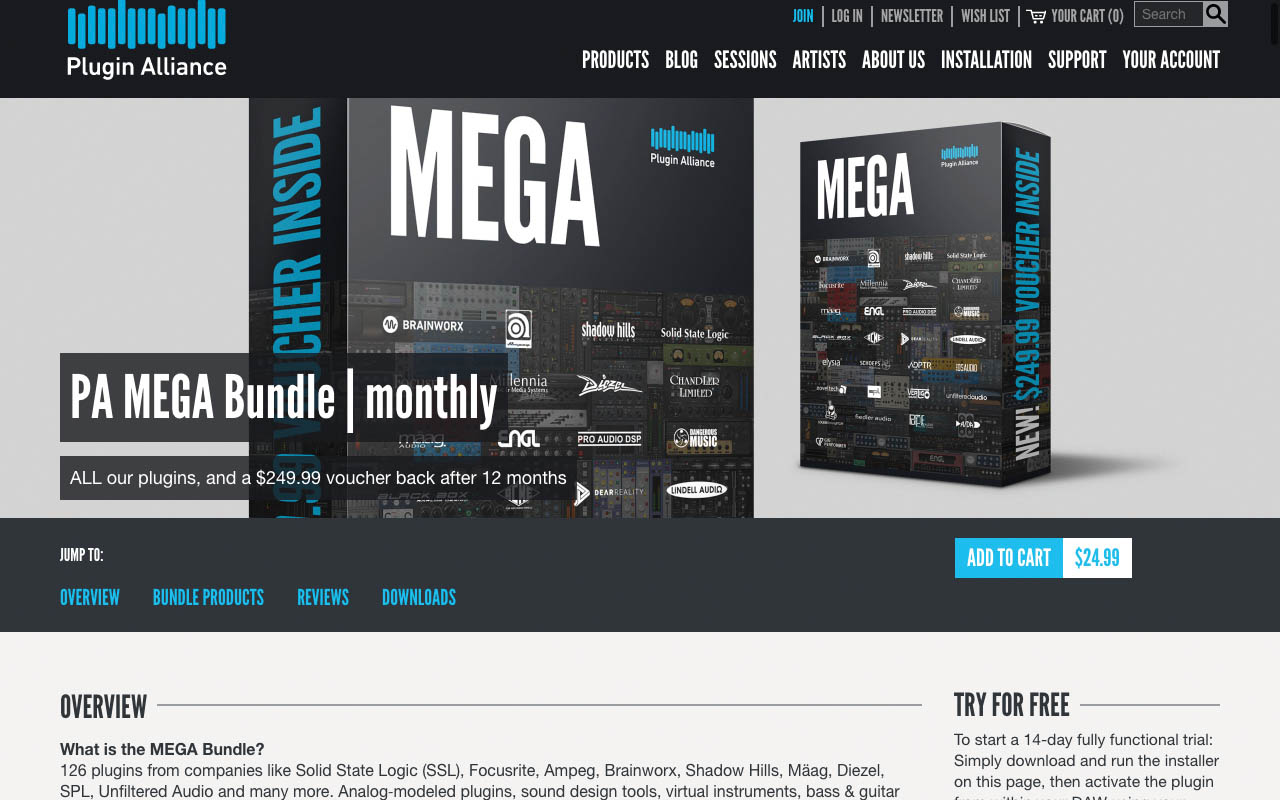
The subscription has quickly become a major force throughout the audio plugin and soundware ecosystem, with early adopters including many of the key players, such as Slate Digital and Plugin Alliance.
Want all the hottest music and gear news, reviews, deals, features and more, direct to your inbox? Sign up here.
Offerings vary considerably and if you have multiple subscriptions the monthly costs stack up. But thankfully many, including Plugin Alliance, have no minimum tie in period so signing up isn’t necessarily a major commitment.
Plugin Alliance launched its subscription scheme a couple of years ago and it’s developed over time so that there are now four options aimed at different monthly price points – Mega Bundle ($24.99), Mix & Master ($19.99), Musician ($14.99) and Essential ($10).
There’s a discount for paying a year upfront, but whichever way you pay, each completed subscription year earns you a use-once voucher, which we think is a major sweetener. Mega Bundle is the premium option, includes all plugins (currently 126) and the inclusion of all new plugins as they are released.
If you’re not interested in amps and instruments then Mix & Master could be a better option. Meanwhile, Musician offers the amps, instruments and effects in a smaller, focused pack, and Essentials is a budget option with 40 plugins. Lindell 50 Series is included in both the Mega and Mix & Master bundles.
Performance and verdict
50 Series includes two API-style compressors based on two classic units – the 525 FET and a favourite of ours, the 2500 VCA. The 50 Series VCA really captures this wonderfully flexible unit. With switchable feedforward and feedback topologies, we found it easy to get highly responsive behaviour perfect for snappy drums and punchy vocals or achieve a more vintage glue effect perfect for mixes and sub-mixes.
Results can be finessed further using the soft knee (SOFT) and Niveau (NIV) sidechain EQ options. We really like this module, but it’s worth saying it’s not quite as flexible as the original hardware, which includes two sidechain EQs and three knee settings.
• iZotope Neutron 3 Advanced
Sculptor, Mix Assistant and some serious optimisation make v3 another solid update to iZotope’s all-in-one channel strip
• Universal Audio Century Tube Channel Strip
CTCS turns your UA audio interface into a responsive and fabulous-sounding analogue recording channel strip.
The FET design is a great retro compressor (2:1) and limiter (20:1) emulation. Like the hardware, attack time is fixed and fast, and there are four release time settings. Further options include an adjustable sidechain filter (20 to 400Hz), global Mix (0 to 100%), De-esser mode (D-S) and a rather handy Ceiling feature.
This combines gain makeup and threshold in one control and is used alongside the main Input and Output controls. The FET compressor is ideal for bringing out the flavour on drum overheads, or for adding punch to beats. We found its slower release settings also handle bass frequencies very well.
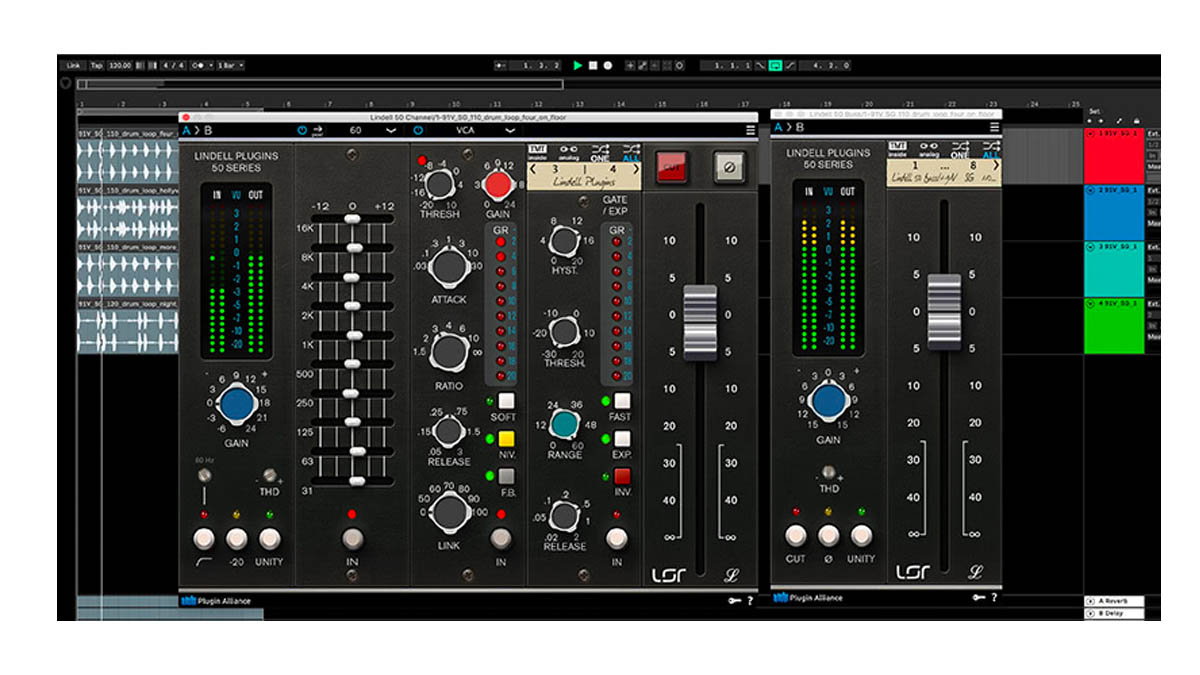
The EQs
The three EQ options are 3-band, 4-band and 10-band graphic. The two parametric designs include selectable high and low shelf, and the 3-band also has a gentle bandpass filter. Gain is +/-12dB across all three plugins.
The EQs are incredibly easy to use and with a 12dB gain limit, it’s hard to go wrong. The curves are musical and, like the hardware, the Q narrows slightly with gain, but this is quite subtle.
Frequencies and gain are both stepped, although you can make the gain continuous in the menu should you wish, and there’s some frequency overlap, so you can get some extra gain in key areas. The EQs sound great and are really transformative, just like the hardware.
We particularly like them for adding crack to beats and snares, body to basses and kicks and all round sparkle. They won’t perform surgical tasks or notch out nasty frequencies, but the chosen frequencies work so well, it’s easy to see why the original designs remain so popular.
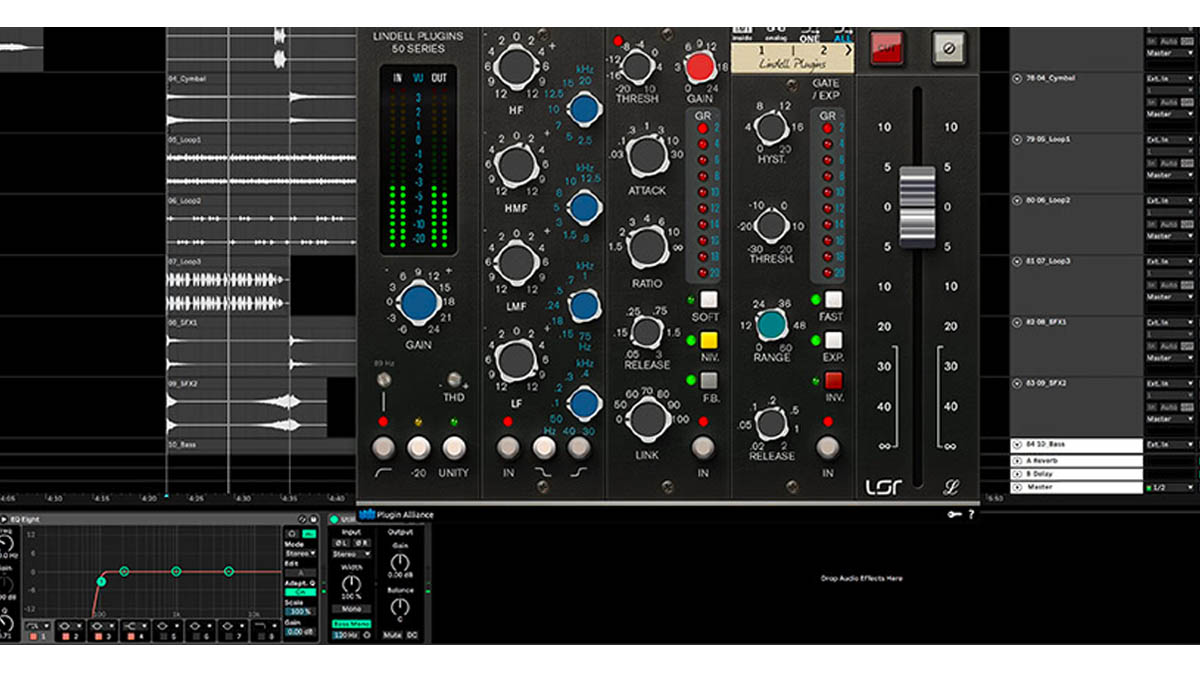
Rounding things off for the Channel is the gate/expander. This is a highly responsive fully featured design with Fast attack, Range and even an Inverted mode (INV) for ducking effects.
The Buss plugin is much simpler than the Channel plugin but still includes the very handy Unity gain option. In our tests, both the Channel and Buss plugins imparted some odd harmonic distortions in their default settings, and we found increasing the THD control boosted these and introduced some even harmonics as well. Neither is particularly extreme but for subtle harmonic enhancement, it’s a useful inclusion.
Overall, 50 Series delivers emulations of key API processors coupled with some very handy extras including TMT, adjustable op-amp clipping and harmonic distortion. It may not be endorsed by the original manufacturer and a couple of the hardware features are omitted, but this is one of the best API-inspired emulations we’ve used, bringing together the classic sound in an easy to use package. Great stuff.
MusicRadar verdict: A great pair of plugins that deliver multiple API classics and then sprinkle some TMT magic on top for good measure.
Hands-on demos
Plugin Alliance
Michael White
Matty Harris
Specifications
- PRICE: $349 / subscription (see above for more details)
- TYPE: Channel strip / Buss plugin
- KEY FEATURES: FET and VCA compressors; 50A, 50B and 60 EQs; 2-stage summing plugin on buss side; preamp and line amp stages include harmonic disortion with hard and soft clipping, circuit noise (on/off), oversampling (x2 to x16); Brainworx’s TMT (Tolerance Modeling Technology) system; 32 TMT channels
- CONTACT: Plugin Alliance
Computer Music magazine is the world’s best selling publication dedicated solely to making great music with your Mac or PC computer. Each issue it brings its lucky readers the best in cutting-edge tutorials, need-to-know, expert software reviews and even all the tools you actually need to make great music today, courtesy of our legendary CM Plugin Suite.
